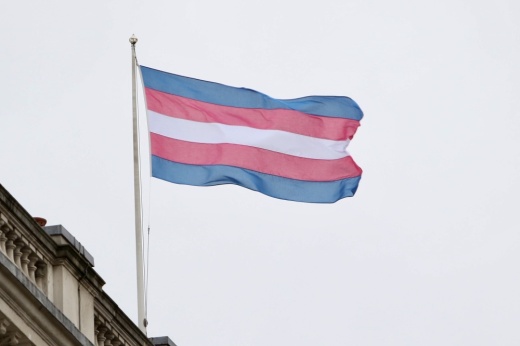Under Senate Bill 14, transgender minors cannot access puberty-blocking medication or hormone therapy, which are used to treat gender dysphoria. Children currently receiving such care must be weaned off of the treatments in a “safe and medically appropriate” way, the legislation states.
The law also bans gender-confirmation surgeries, although medical experts say they are rarely performed on children.
How we got here
Five Texas families, three physicians and two LGBTQ+ organizations sued the state in July, arguing SB 14 discriminates against transgender children by denying them treatments that nontransgender youth could still access.
Following a two-day hearing in the Travis County District Court, Judge Maria Cantú Hexsel issued a temporary injunction Aug. 25 to stop the bill from becoming law.
Siding with the plaintiffs, Cantú Hexsel said the law violated the Texas Constitution by infringing on parents’ rights to choose the best medical treatment for their children, interfering with physicians’ rights to occupational freedom and discriminating against transgender youth.
“The act was passed because of, and not in spite of, its impact on transgender adolescents, depriving them of necessary, safe and effective medical treatment,” the judge wrote.
The bill includes exceptions for children experiencing early “precocious puberty” and children who are intersex—which means they have reproductive or sexual anatomy, including chromosomes, that do not align with the traditional male and female binary.
The Texas attorney general’s office immediately appealed Cantú Hexsel’s order to the state Supreme Court, which ruled Aug. 31 that the law will go into effect as scheduled.
The court did not explain its decision in the ruling or address the constitutionality of the law. The full case is still pending before the court, which may hold a future hearing.
“The OAG will continue to enforce the laws duly enacted by the Texas Legislature and uphold the values of the people of Texas by doing everything in its power to protect children from damaging ‘gender transition’ interventions,” the attorney general’s office said in a news release after the appeal was filed.
The details
Doctors who continue to provide puberty blockers, hormone therapy or gender-confirmation surgery to minors will lose their medical licenses under the new law. Some physicians have already left Texas to work in states that allow doctors to provide gender-affirming care to minors, according to Alex Sheldon, the executive director of GLMA: Health Professionals Advancing LGBTQ Equality.
“What will Texas look like when health care providers have left the state in droves?” Sheldon asked in July. “This scenario is one where all Texans will struggle to access adequate health care.”
There are approximately 29,800 transgender Texans between the ages of 13-17, according to a recent study by the Williams Institute at the University of California Los Angeles. This is 1.42% of all Texans aged 13-17.
Gov. Greg Abbott signed SB 14 in June. The Republican governor has been vocal in his support for new laws about LGBTQ+ Texans' rights, such as SB 15, which will require college athletes to compete on sports teams based on the sex they were assigned at birth.
Texas will be the most populous state to ban transition-related care for minors, while 20 other states have passed or implemented similar legislation, according to the Human Rights Campaign, an LGBTQ+ advocacy group. Several others are considering similar policies.





